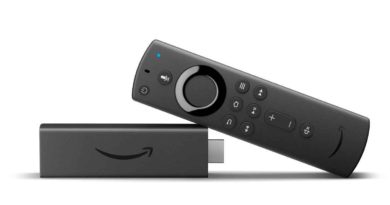LTE vs. Wi-Fi: Which is better for Live Streaming?
We live in the era of a world of application-driven and technology-fueled. The search is still on for a high-quality internet connection. That’s why people are still debating whether private LTE for companies is better or Wi-Fi.
While Wi-Fi is still favored for enterprises, small-scale technology-based businesses have begun using the private LTE network. It has been seen over the past couple of years that most enterprises with small-scale networks derive from the LTE network.
The LTE connection norm is increasingly growing, however. The main explanation for the central connection of the private LTE network is its ability to connect to other Internet of Things (IoT).
If a private LTE network is used by other organizations, it doesn’t mean you can do the same as well. You must ask yourself whether it is the right choice or not before you begin using the LTE network for your business.
You must do so after reading it if you are thinking of implementing LTE technology in your business.
LTE Private vs. Wi-Fi
We should be on the same comprehension page before we dive deep into this discussion. Let us first clarify the two technologies on the internet here.
What’s LTE Private?
LTE stands for Evolution of Long Term. If it doesn’t sound familiar, how about 4G, then? Yes, this may be the best way for the private LTE network to call. They are the cellular broadband networks of the 4th century. For data terminals and mobile devices, it is used as a communication protocol.
The word LTE means a wireless cellular link that is normal, superior, and high-speed. You get a broad range of bandwidth with the LTE network, which can link more devices. If your network is on the heavy side, most experts suggest this link.
Radio waves are used by private LTE networks to communicate with one another. This is why they are the fastest network for mobile devices and smartphones.
What’s a Wi-Fi system?
Wi-Fi has undeniably been one of the most well-known terms in the area of the internet. But what does that imply? The short abbreviation for the wireless networking protocol is Wi-Fi. With the aid of this technology, without internet cables, individuals can easily move or interact with online data.
This word has become a trademark of all businesses that have internet connections. The term Wi-Fi refers to a type of network created by the connection between the wires.
An electronic system called a router revolves around the entire Wi-Fi connection. Between the two machines, it serves as a mediator. The router transmits a wireless signal that the other devices can interpret. This signal helps to communicate between the two units.
Which is more appropriate?
As we know, both LTE and Wi-Fi have the same kind of operation. They vary in their infrastructure, technical aspects, and characteristics, however.
1. Engineering
The technical distinction between the two is that you don’t need any other system to access the LTE network other than your smartphone. You need a data plan and you should connect to your cellular network. When we come to Wi-Fi technology, however, to communicate with other devices such as laptops and tablets, a wireless router is needed.
2. Security
It becomes very critical when dealing with an internet link that we see how reliable the connection is. Especially when you are a small business that deals with the sensitive data of customers. While we know that every link is not 100 percent secure, in terms of security, LTE networks have been shown to rank higher than Wi-Fi. A much more secure and fast internet connection can be seen.




